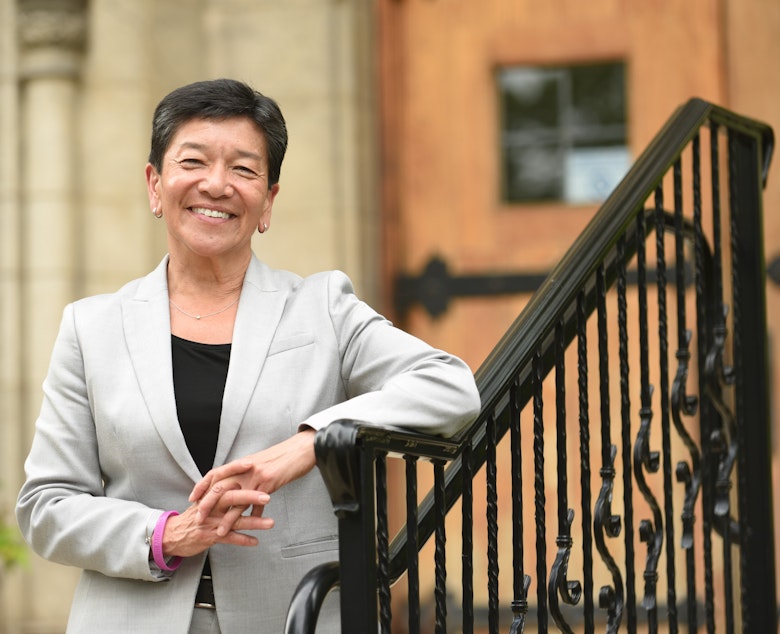A view of the SCOTUS Title VII decision from Justice Mary Yu

A ‘watershed moment.’ That's the response from many Supreme Court observers after this week's ruling that title seven of the Civil Rights Act protects LGBTQ people from discrimination in the workplace.
Watching closely, along with many of us, is Washington State Supreme Court Justice Mary Yu, the state's first openly gay justice, who is also Asian American and Latina.
This interview has been edited for clarity.
I'm curious, what was your reaction when you first heard about this 6-3 ruling from the U.S. Supreme Court this week?
I have to be honest and say I was surprised. I think like many others who have been watching the court and wondering what the outcome might be, some of us were a little less than optimistic. So, I would say was surprised, and then second, just absolutely delighted.
'Delighted.' Tell me more about that.
I was really happy that the protections that we have in Washington state have now been extended to everyone else in the country. We are fortunate enough to not have to worry about losing our job or housing because of who we are.
So, that sense of feeling secure in something so basic as having the right to work, is something that everyone's been entitled to. I was just really happy that now the rest of the country can celebrate that fact as well.
I'm wondering what you make of the 6-3 split that we saw this week, and that Neil Gorsuch, who leans conservative, wrote the majority opinion.
When you take the time to actually read the opinion, you can see how somebody who might be cast as conservative got to the place where he did. That's just because of the rule of statutory construction.
He simply read the text carefully, came to some clear conclusions based on the text, and some people would say that's a tool that has been used by conservatives in interpreting statutes or the Constitution.
I guess I don't necessarily believe that a justice falls into one category or the other. But it makes sense in terms of the logic, and to the place that he got to just by reading the text and interpreting what sex actually meant in the context today.
In terms of real life impact for people here in Washington, what kinds of impacts do you think this ruling could have?
Well, the impact it has would be for those who are employed by the federal government. That's a real actual impact for some Washingtonians. But for the broader community here in Washington, I think it affirms what we already know, and re-enforces local protections that we have had in Washington.
Just a few months ago, there were a couple of teachers at Kennedy Catholic High School, in Burien, who left their jobs after saying they were getting married to their same sex partners. Many of their students and families at the school were upset that the teachers had been forced to resign, in their opinion. What impact do you think this ruling could have on teachers who have either been fired, or forced to resign from religious schools, for being gay here in Washington?
That's the one thing this case does not address. That is the whole question of religious exemptions, and what it means for religious institutions. I would say, that's the next case coming.
People have been concerned about how politicized the U.S. Supreme Court has appeared to become over the years, yourself as well I understand. Where do you see the bench now, especially at this time in our history when people appear to be so divided?
The one thing that's very gratifying about this opinion is it was not only an opinion that looked at the text, but I would have to say there's at least a recognition when they look out that they see what there is to see. I could say that the majority author here, Justice Gorsuch, recognized the reality, and the changing landscape of this country.
I would hope that this is an opportunity to be unified on some values rather than divided. I look at the court, and because maybe I work for the courts, I believe we can be a unifying force that reminds us of some core values about who we are as a nation.





